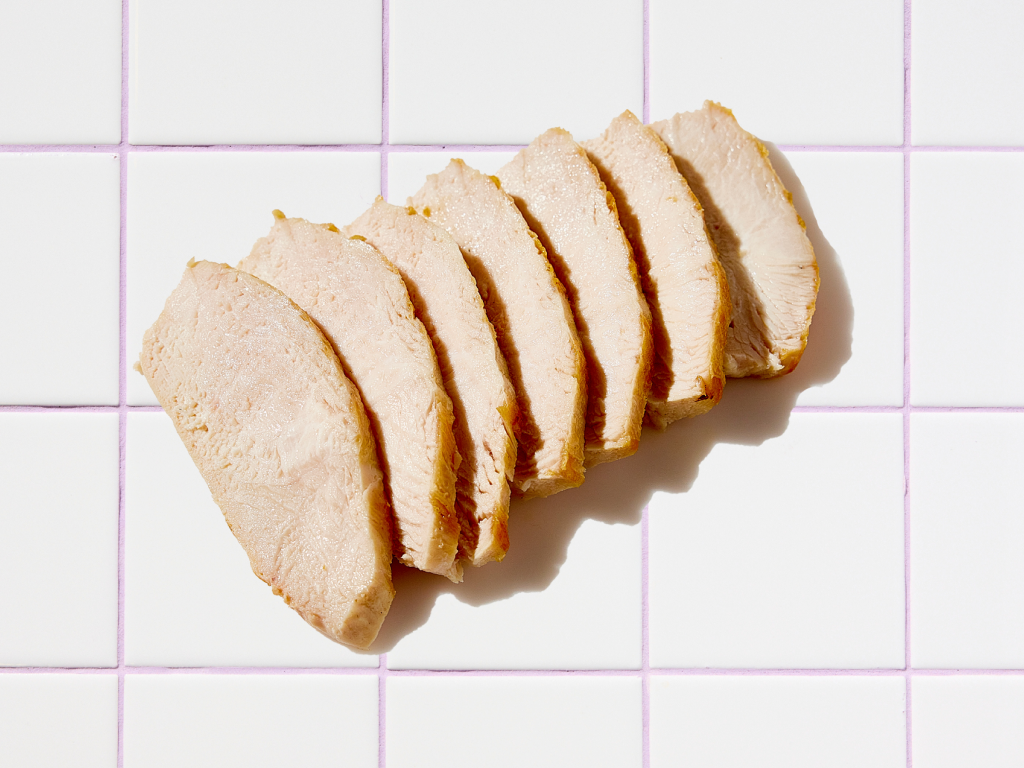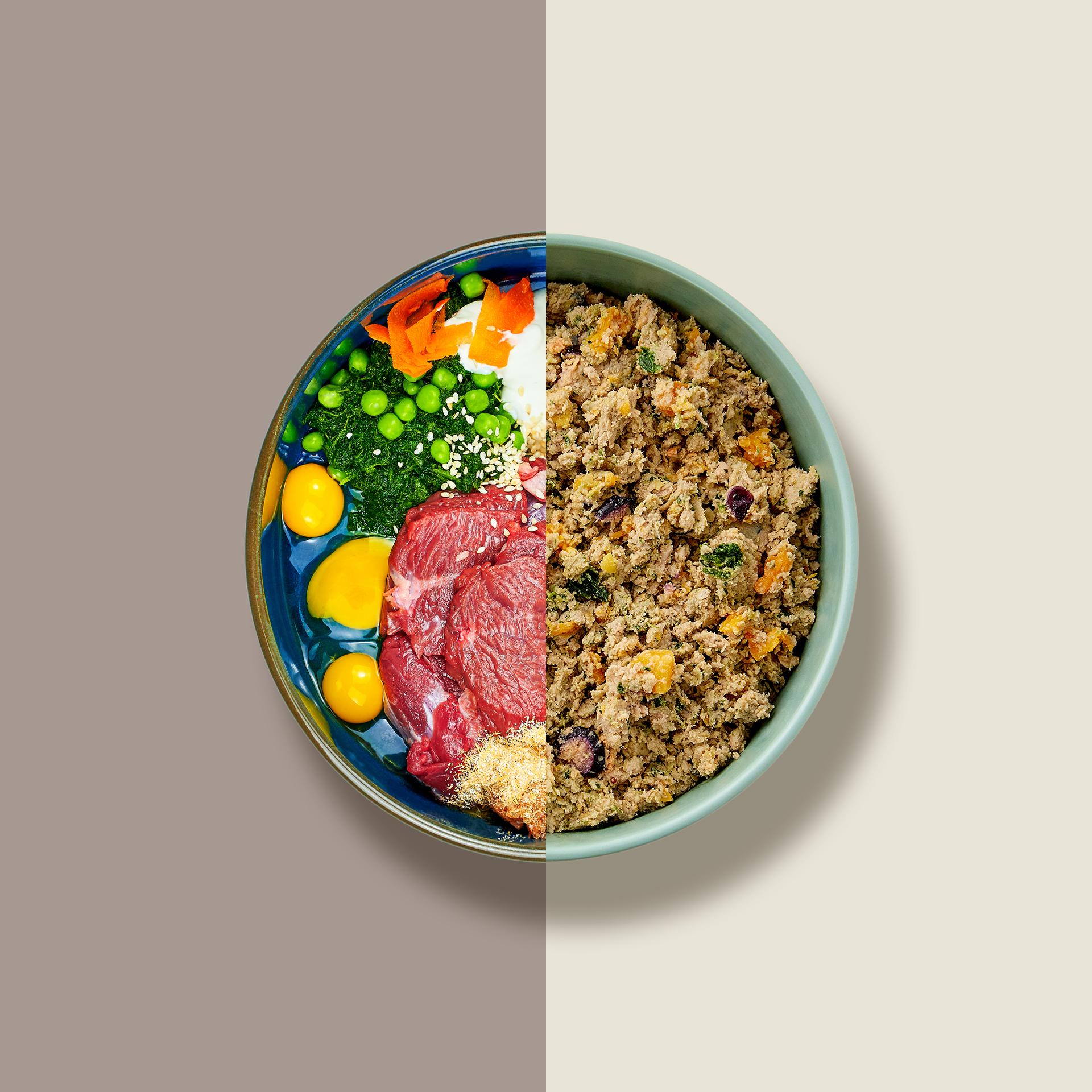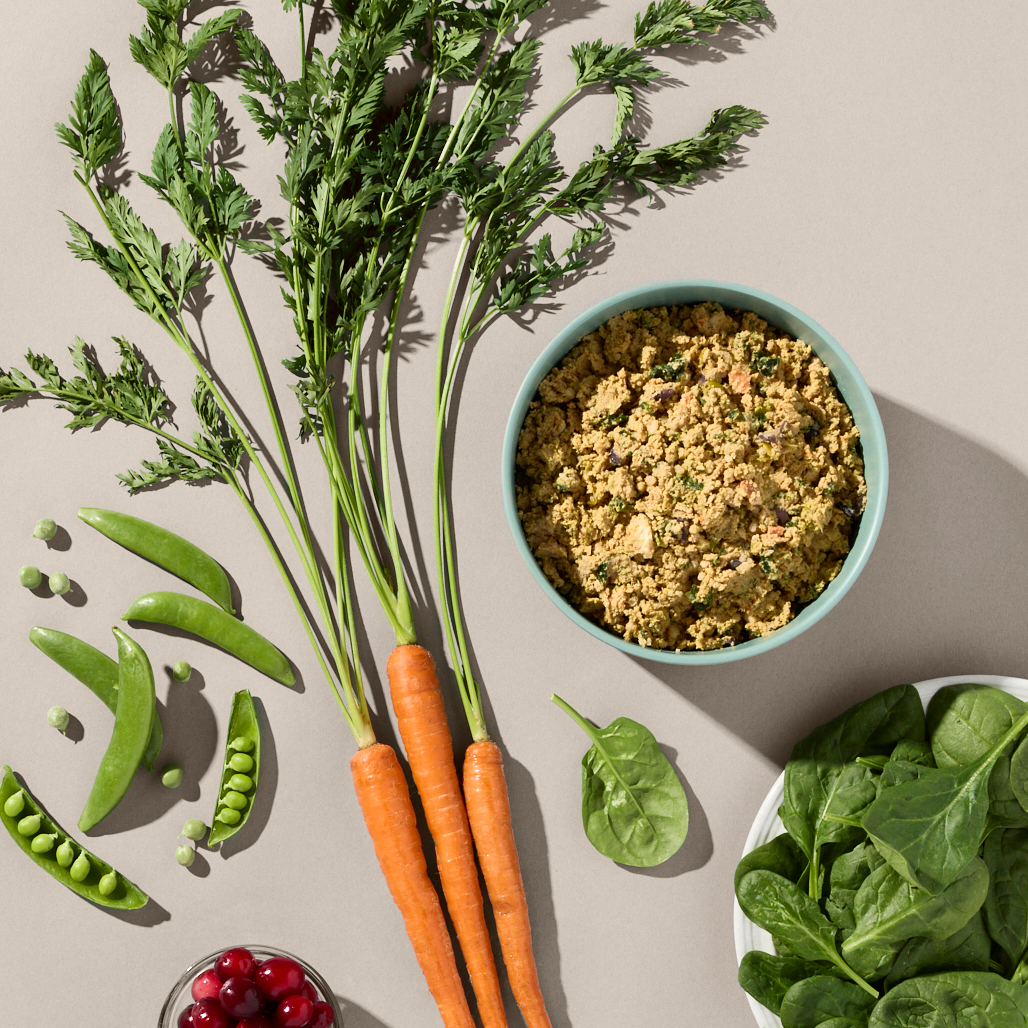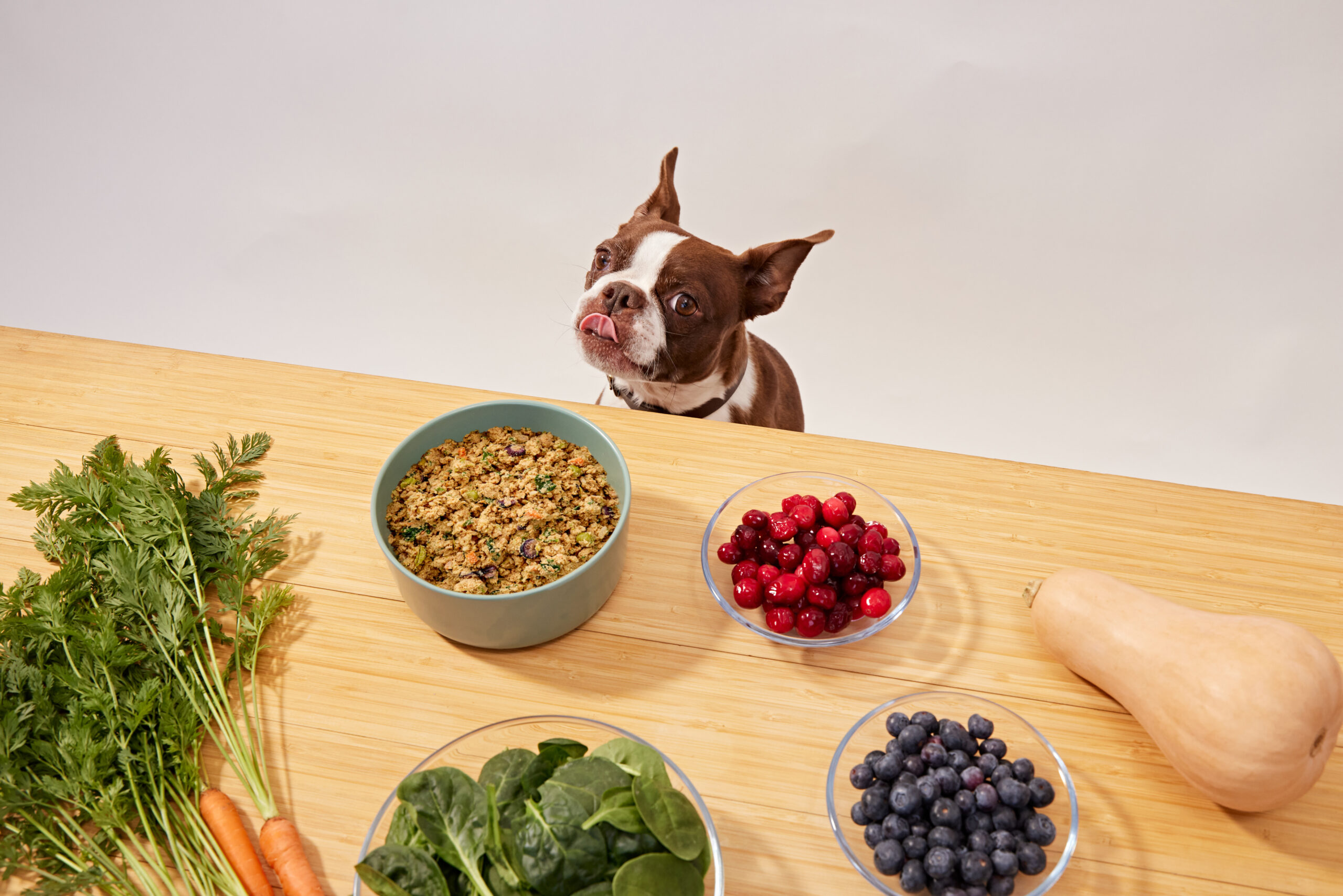Hey Ollie blog readers! We’re offering you an exclusive 60% OFF your starter box! Try now!
Protein is a key part of your dog’s nutrition, supporting everything from muscle growth to immune function. As a pet parent, you want to give your pup the best start in life and maintain their well-being at every stage. But how do you know which protein source is best for your dog? Let’s break down the science behind protein and why meat matters.
Why Protein Matters in Your Dog’s Diet
The Building Blocks of Health
Protein is made up of amino acids, which are essential for tissue growth, repair, and overall vitality. Dogs require 22 amino acids to thrive. While they can produce 12 of these on their own, the remaining 10—known as essential amino acids—must come from their diet[1]. Without enough high-quality protein, dogs can face serious health issues, including:
- Anemia
- Unhealthy weight loss
- Dry, itchy skin and coat
- Hormone imbalances
- Lethargy and depression
- Brittle nails
- Digestive ulcers
- Heart disease
A protein-deficient diet can even be life-threatening[1].

Meat vs. Plant Protein: What’s the Difference?
Bioavailability and Amino Acid Profile
While dogs can digest both animal and plant proteins, not all protein sources are created equal. Meat proteins—like beef, chicken, turkey, and duck—are more bioavailable, meaning your dog’s body can absorb and use them more efficiently[2]. These proteins also provide a complete amino acid profile, supporting everything from muscle development to immune health.Plant proteins (such as soy, quinoa, barley, oats, and peas) can supplement a dog’s diet, but they often lack certain essential amino acids and are higher in carbohydrates[3]. Excess carbohydrates can convert to sugar and fat, which may contribute to weight gain and related health issues.
Quick Comparison: Meat vs. Plant Protein
| Criteria | Meat Protein | Plant Protein |
| Amino Acid Completeness | Complete | Often incomplete |
| Digestibility | High | Moderate |
| Carbohydrate Content | Low | Moderate to high |
| Common Sources | Beef, chicken, turkey, duck | Soy, quinoa, oats, peas |
| Allergy Risk | Varies by protein | Lower, but less bioavailable |
The Best Protein Sources for Dogs
Top Animal Proteins
- Chicken: Lean, rich in essential amino acids, and supports muscle development. However, it’s a common allergen for some dogs[2].
- Beef: High in protein and iron, supports energy and muscle maintenance.
- Turkey: Lean, easily digestible, and a good source of B vitamins and selenium[4].
- Duck and Lamb: Great alternatives for dogs with sensitivities to more common proteins.
- Fish (Salmon, etc.): Provides omega-3 fatty acids for skin and coat health[2].
Plant-Based Proteins
- Soy, Quinoa, Buckwheat: Offer some essential amino acids but are best used as supplementary sources[3].
- Barley, Oats, Peas: Add fiber and nutrients, but should not be the primary protein source for most dogs[3].
Example: A growing puppy needs about 29% protein in their diet, with 20-25% of their calories coming from protein. Adult dogs require 18-25% protein, but the quality and source matter just as much as the quantity[1].
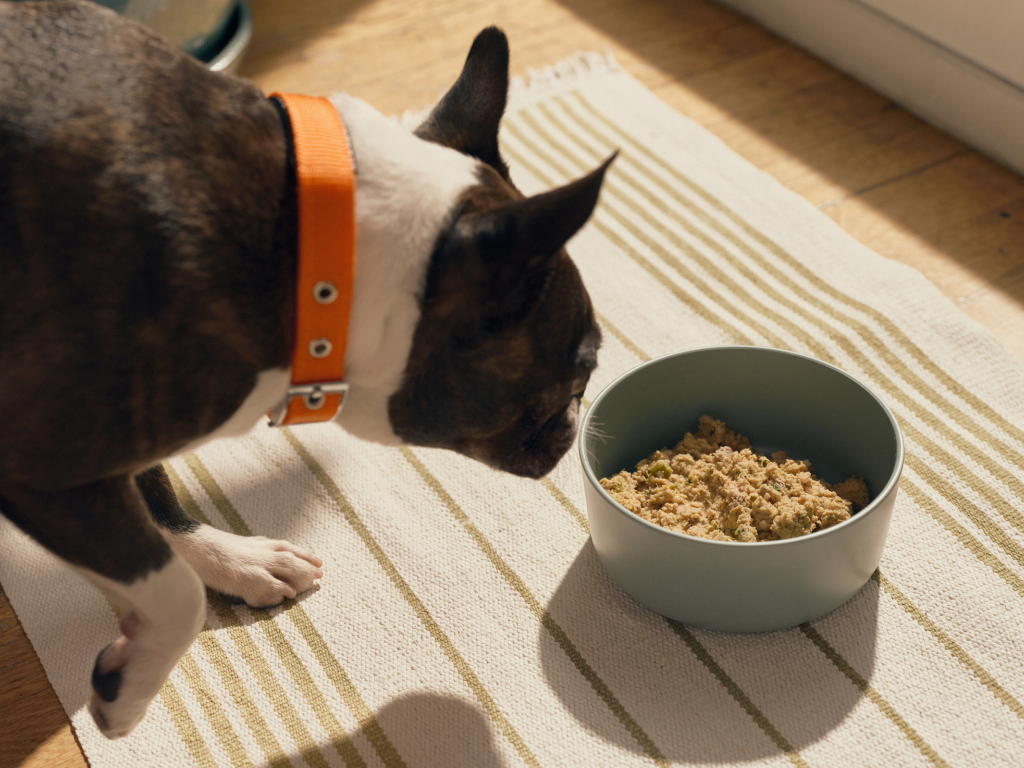
Protein Needs Across Life Stages
Puppies
Puppies need more protein than adult dogs to support rapid growth, muscle development, and a strong immune system. High-quality meat protein helps build a robust skeletal structure and healthy digestion from the start[1].
Adult Dogs
For adult dogs, protein maintains lean muscle mass, supports organ function, and helps manage weight. A diet with at least 30% lean meat protein is recommended for optimal health[1].
Senior Dogs
As dogs age, muscle and skeletal breakdown can occur. Meat protein helps slow this process, supporting agility and overall health so your pup can stay active longer.
Managing Protein Allergies and Sensitivities
Some dogs develop allergies or sensitivities to certain proteins, most commonly chicken or beef[2]. Symptoms can include:
- Itchy skin
- Gastrointestinal upset
- Ear infections
If your dog shows signs of a protein allergy, consider switching to a novel protein like pork, lamb, or fish. Ollie’s personalized meal plans can help you identify and manage these sensitivities with recipes tailored to your pup’s needs.
Callout: If your dog has a sensitive stomach or food allergies, choosing the right protein source is key. Ollie’s recipes use single-source proteins and limited ingredients to help reduce the risk of allergic reactions.

Fresh Dog Food: Why Quality and Personalization Matter
Industry Trend: The Rise of Fresh, Human-Grade Dog Food
Pet parents are increasingly seeking fresh, minimally processed, human-grade dog food. According to industry data from 2023, the fresh dog food market has grown by over 20% as more people recognize the benefits of whole-food nutrition for their pups.
Ollie’s Approach
Ollie delivers freshly cooked, human-grade meals tailored to your dog’s age, breed, size, and health needs. Each recipe is developed by veterinary nutritionists and uses whole meats, fruits, vegetables, and grains—never fillers or artificial additives. This personalized approach helps support:
- Healthy growth in puppies
- Weight management in adults
- Improved digestion and energy
- Reduced allergy symptoms
How Ollie Stands Out
- Personalized feeding guide based on your dog’s unique profile
- Human-grade, whole ingredients for maximum nutrition
- Flexible delivery options to fit your schedule and budget
Frequently Asked Questions (FAQs)
What is the best protein for puppies? Lean meat proteins like chicken, beef, turkey, and lamb provide the complete amino acids puppies need for healthy growth[1][2].
Can dogs thrive on plant-based protein alone? Dogs can digest plant proteins, but these often lack certain essential amino acids. Meat protein is more bioavailable and supports better overall health[2][3].
How do I know if my dog has a protein allergy? Common signs include itchy skin, digestive upset, and ear infections. Consult your veterinarian and consider switching to a novel protein source if symptoms persist[2].
Is fresh dog food better than kibble? Fresh dog food made with whole, human-grade ingredients offers better digestibility, higher nutrient retention, and fewer fillers compared to most kibble.
How much protein does my dog need? Puppies need about 29% protein, while adult dogs require 18-25%. The source and quality of protein are just as important as the amount[1].
Conclusion
Protein is an essential part of a well-balanced diet, providing your dog with the nutrients they need to thrive. When choosing your dog’s food, look for high-quality animal proteins like the ones found in Ollie recipes. Ollie combines expert insights and human-grade ingredients to help your dog live a longer, healthier life. Ready to see the difference fresh, tailored nutrition can make? Try it for yourself!
Citations
[1] https://tibetandogchew.com/blogs/blog/10-best-protein-sources-for-dogs
[2] https://www.wellnesspetfood.com/blog/how-to-choose-the-best-protein-for-your-dogs/
[3] https://pupford.com/blogs/all/proteins-dog-food[4] https://www.dogseechew.in/blog/dog-nutrition-7-best-protein-sources-for-dogs
Tagged As:

The nutrition your dog needs,
the food they want.

Enjoying our articles? Subscribe our Newsletters and get new articles directly to your inbox
You might also like
12 August 2025
5 MINS READ
Raw vs. Gently Cooked: Which Is Ideal for Your Pup?
As more pup parents seek the best fresh dog food for their companions, they may find themselves choosing between a raw diet and a fresh diet. While cases have been made for both options, let’s exa…
by Ollie Pets
12 August 2025
5 MINS READ
Why Human-Grade Ingredients Matter for Your Dog
A healthier, happier dog starts with the right food. That said, knowing which diet is best for your pup can be overwhelming at times. Understanding what human-grade means, why it matters, and how …
by Ollie Pets
12 August 2025
7 MINS READ
Spotlighting the Top Nutrients for Your Dog
Just like humans, your dog’s health depends heavily on the food they consume daily. Read on to learn more about essential nutrients for your dog’s health and explore how fresh, human-grade dog foo…
by Ollie Pets
